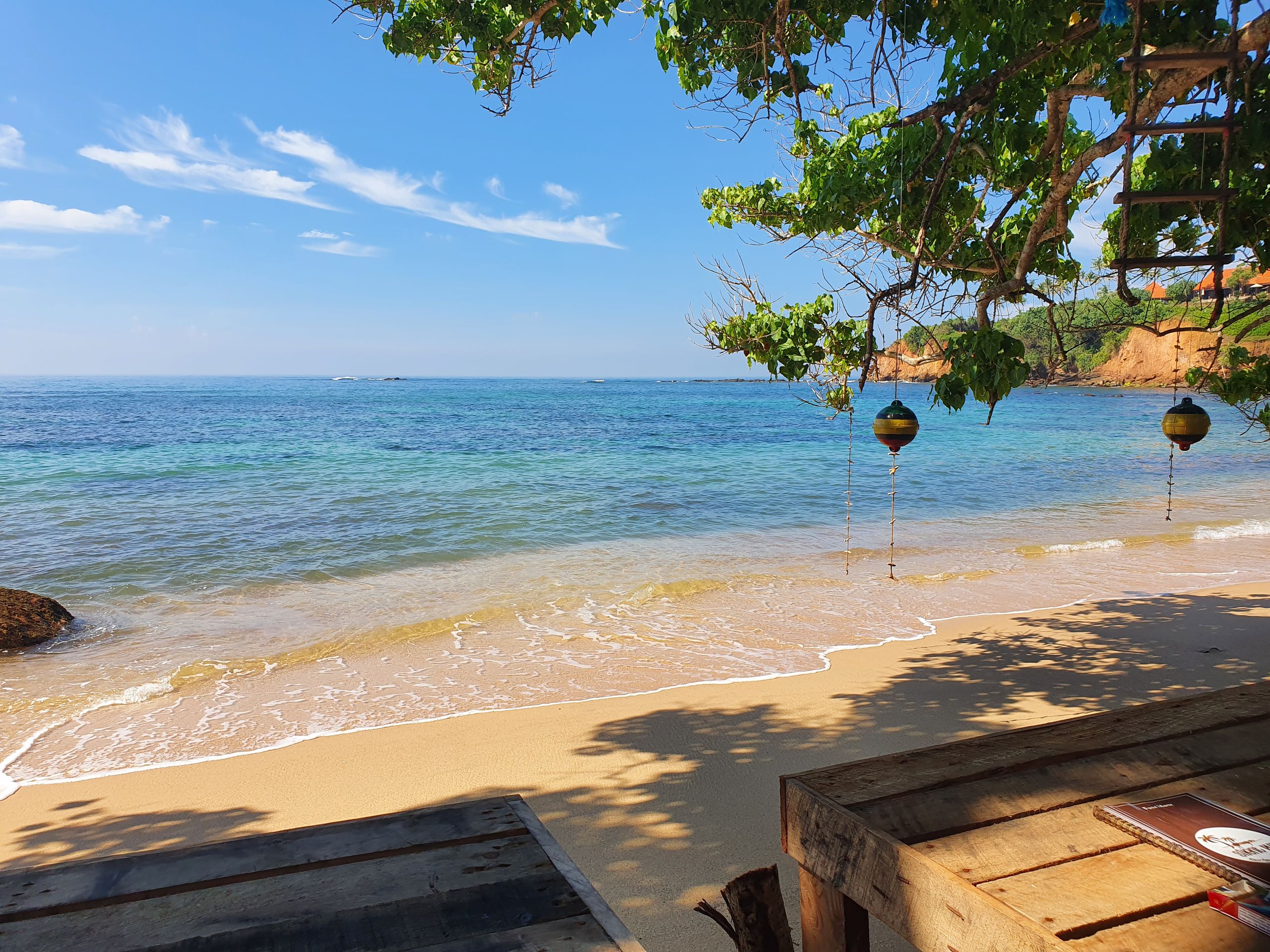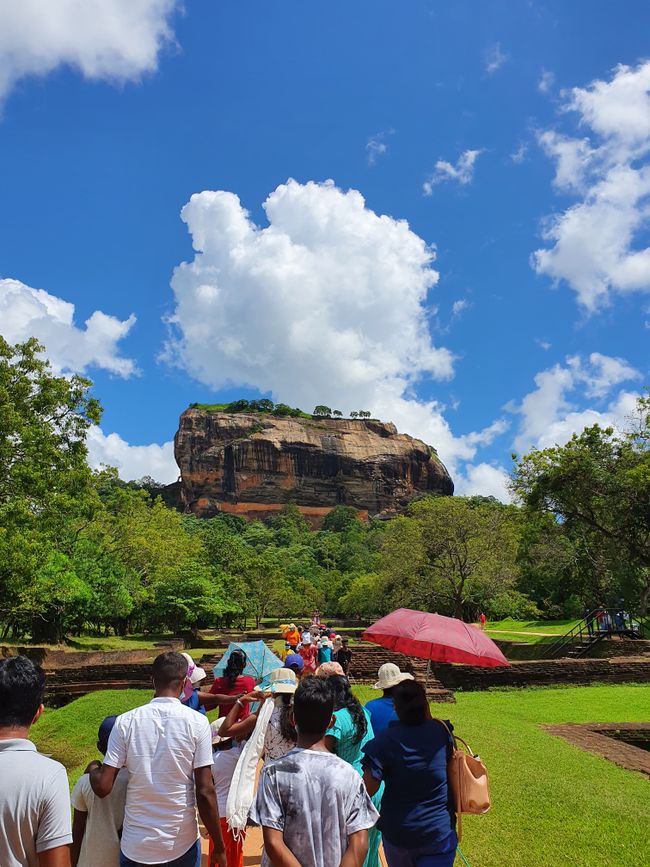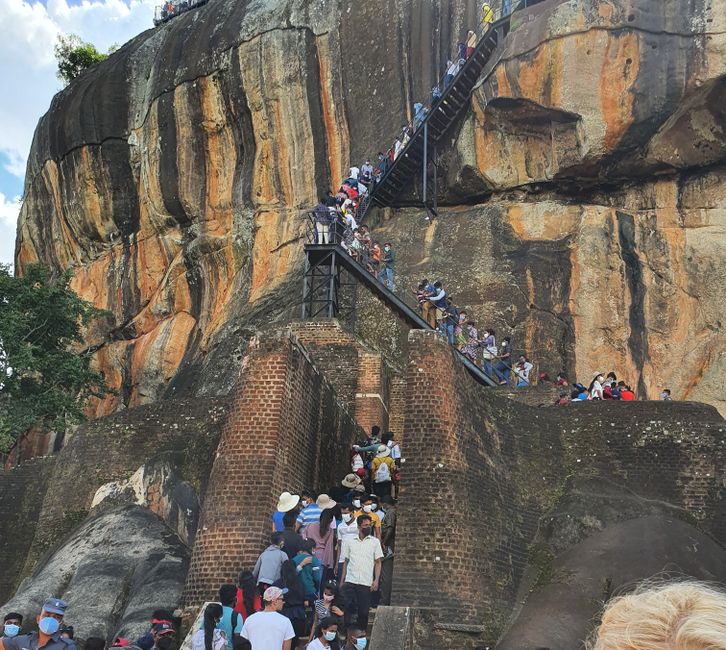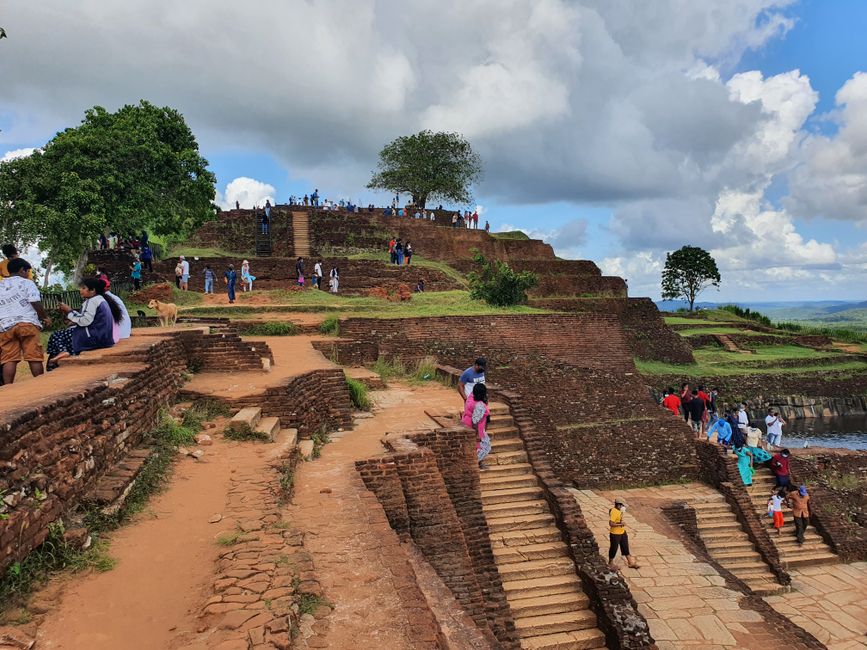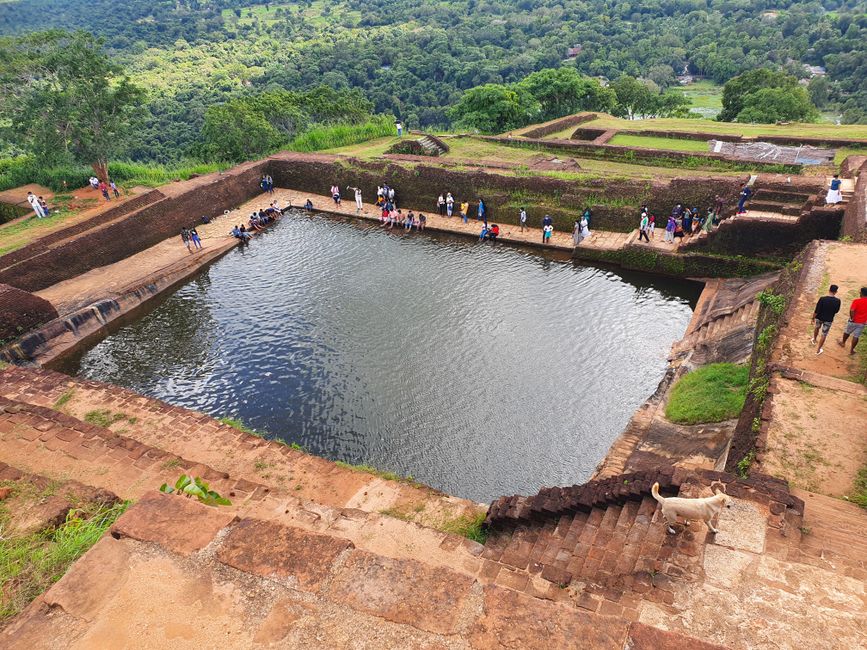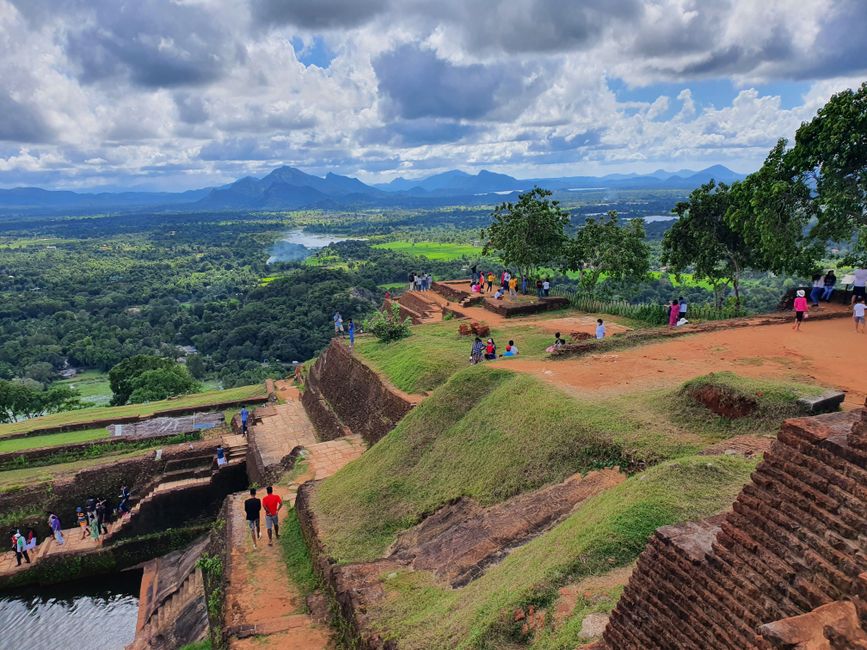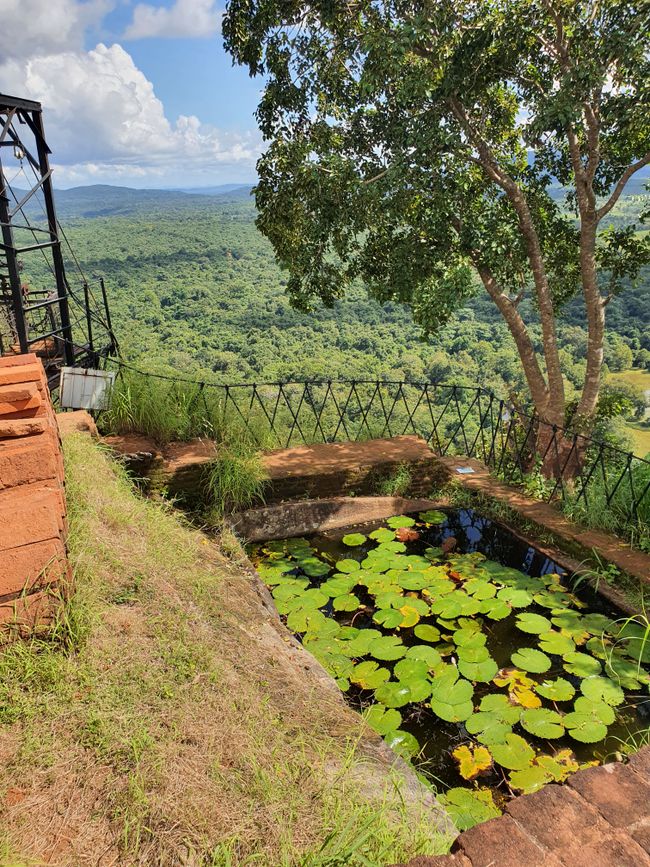On the 'Lion Rock' Sigiriya in Sri Lanka
प्रकाशित: 16.01.2022
समाचारपत्रस्य सदस्यतां गृहाण
The Sigiriya Rock is somewhat like the Acropolis of Sri Lanka. An outstanding rock made of volcanic rock that every Sri Lanka traveler should climb, according to travel guides. Sigiriya means Lion Rock - you'll see why soon. The ruins on the rock were once a Buddhist monastery, which was probably abandoned in the 14th century. It is a UNESCO World Heritage Site, so it is somehow significant. There is also a wild story about a dubious king from the 5th century who had usurped the throne and allegedly moved his 'capital' to the rock out of fear of just punishment.
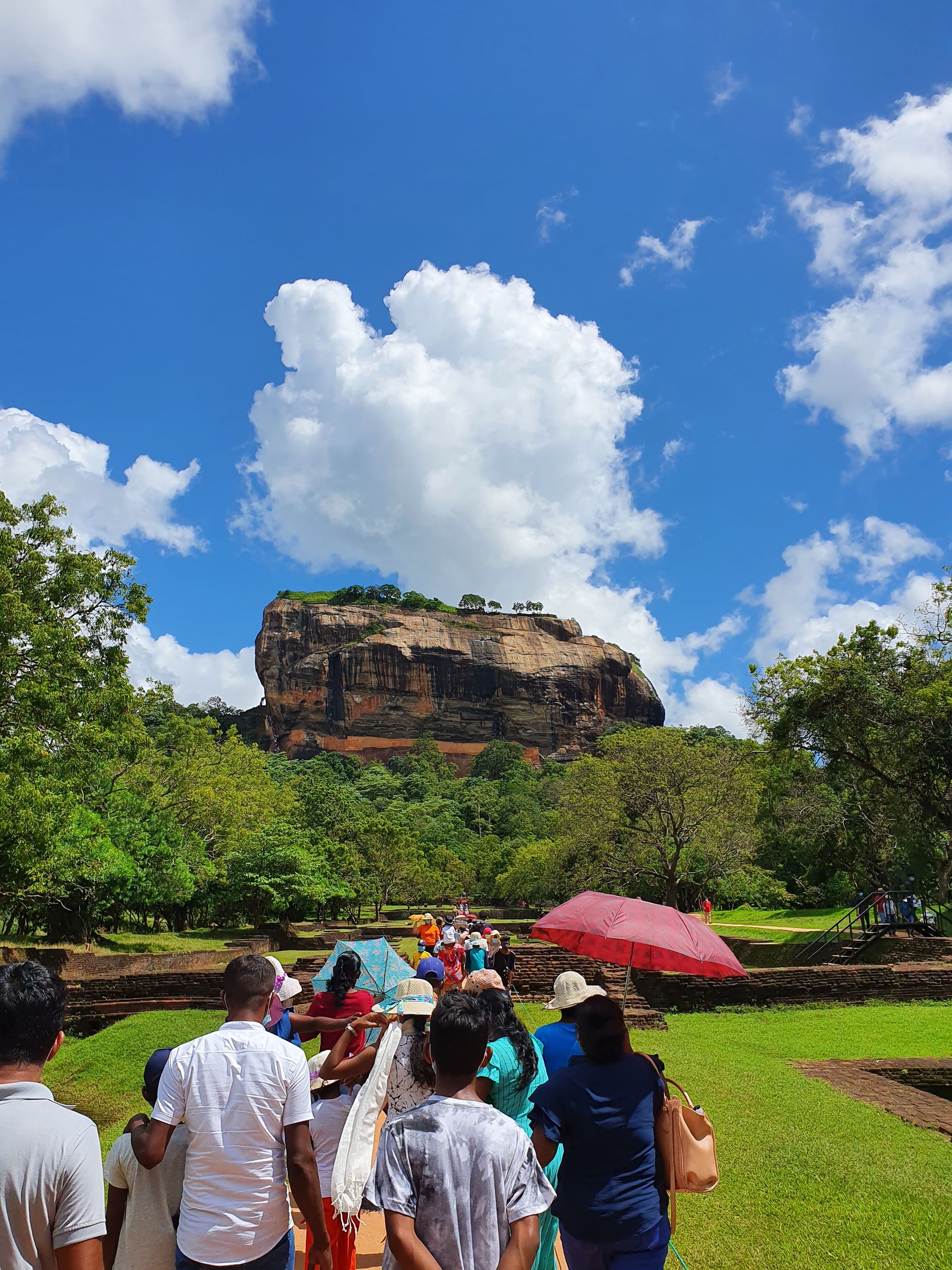
The ascent is made via quite steep stairs and is only suitable for sure-footed people. After the first section of stairs, you can see the lion's paws, which originally belonged to a lion's head. The original staircase apparently went through the lion's mouth. Very amusing.
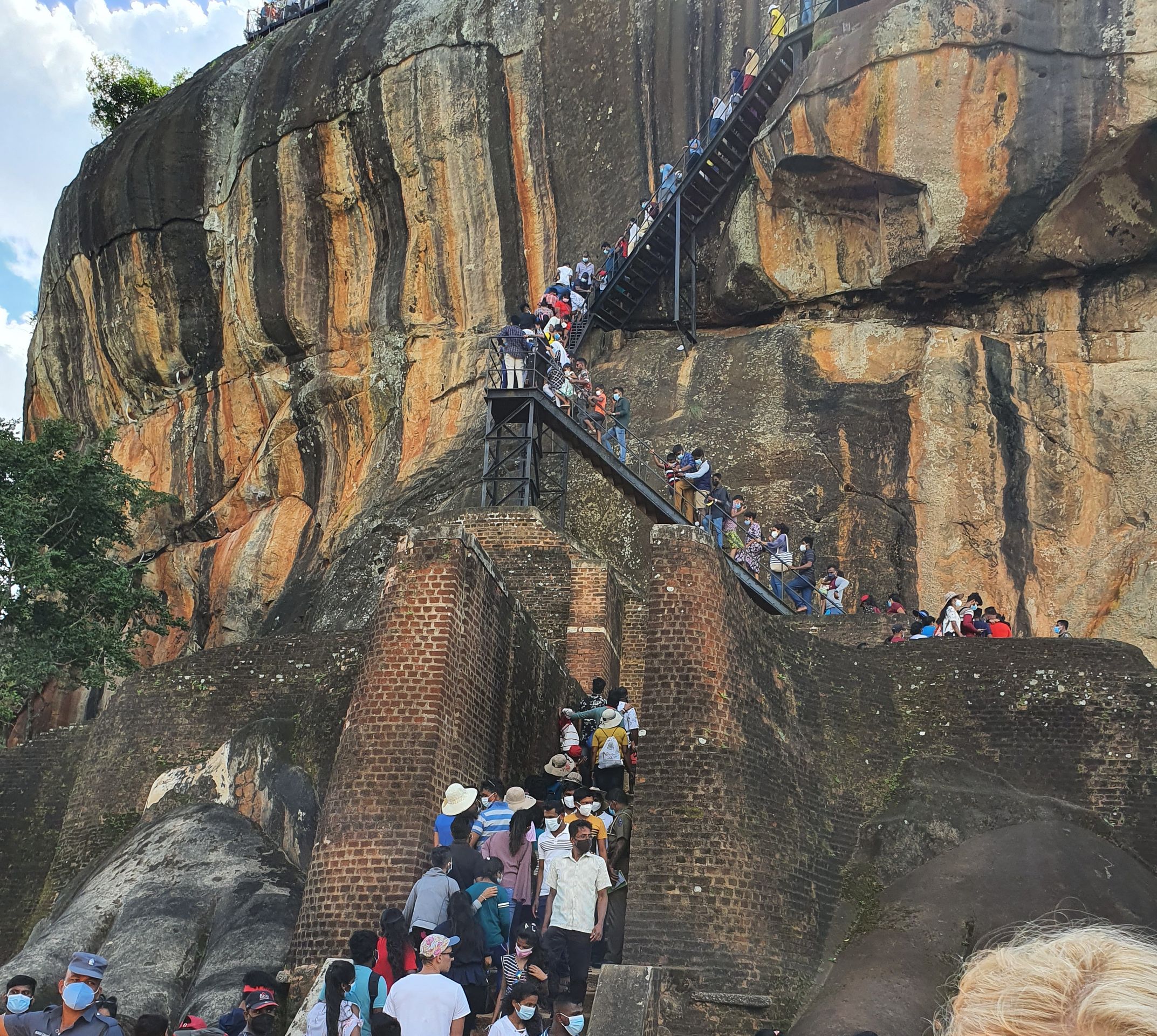
As you can see in the picture, we were there on a Sunday. Not a good idea, as many weekend trippers from the cities of Lanka come and the crowd pushes up and down the rock at a slow pace. A bit like on Mount Huang Shan in China, but without the Chinese discipline of queuing.
When you finally reach the top, you will be rewarded with a magnificent view of the landscape.
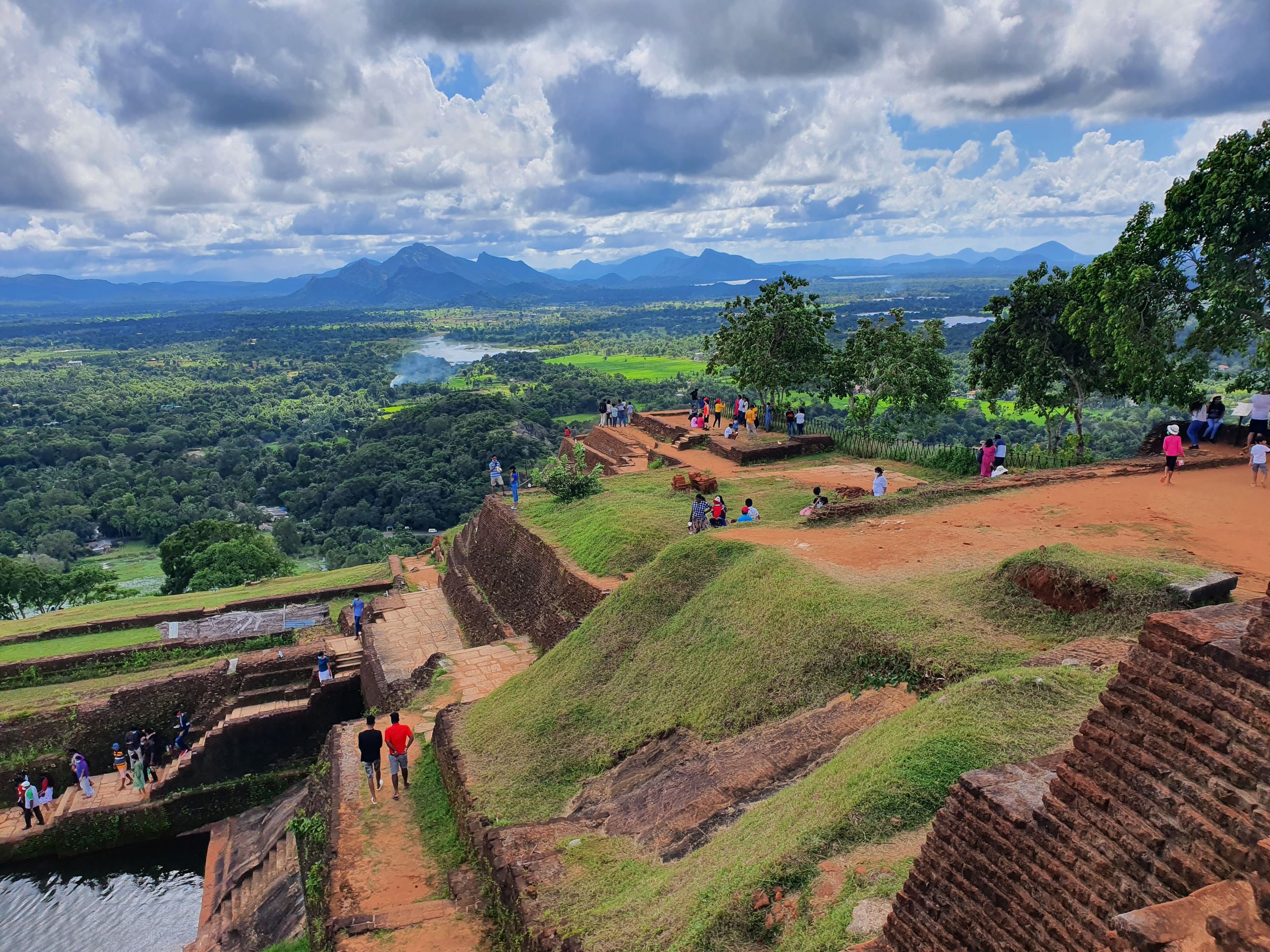
The remains of the monastery complex consist mainly of bricks and do not look as impressive as they actually are. For the monks, climbing stairs obviously did not end with the ascent to the rock, there are also many differences in altitude to overcome on the plateau.
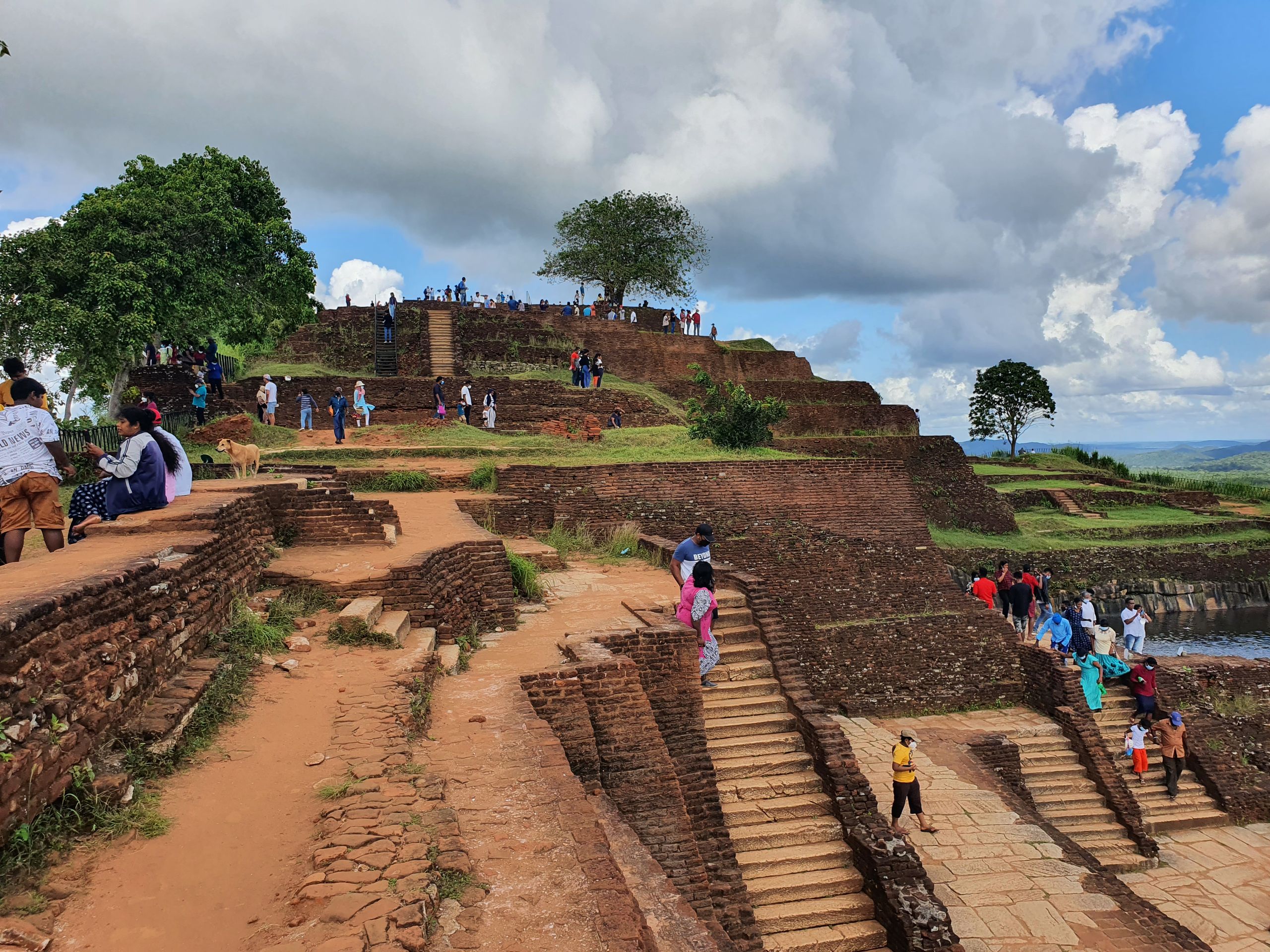
A highlight on the plateau is the swimming pool, which was probably just a rainwater tank.
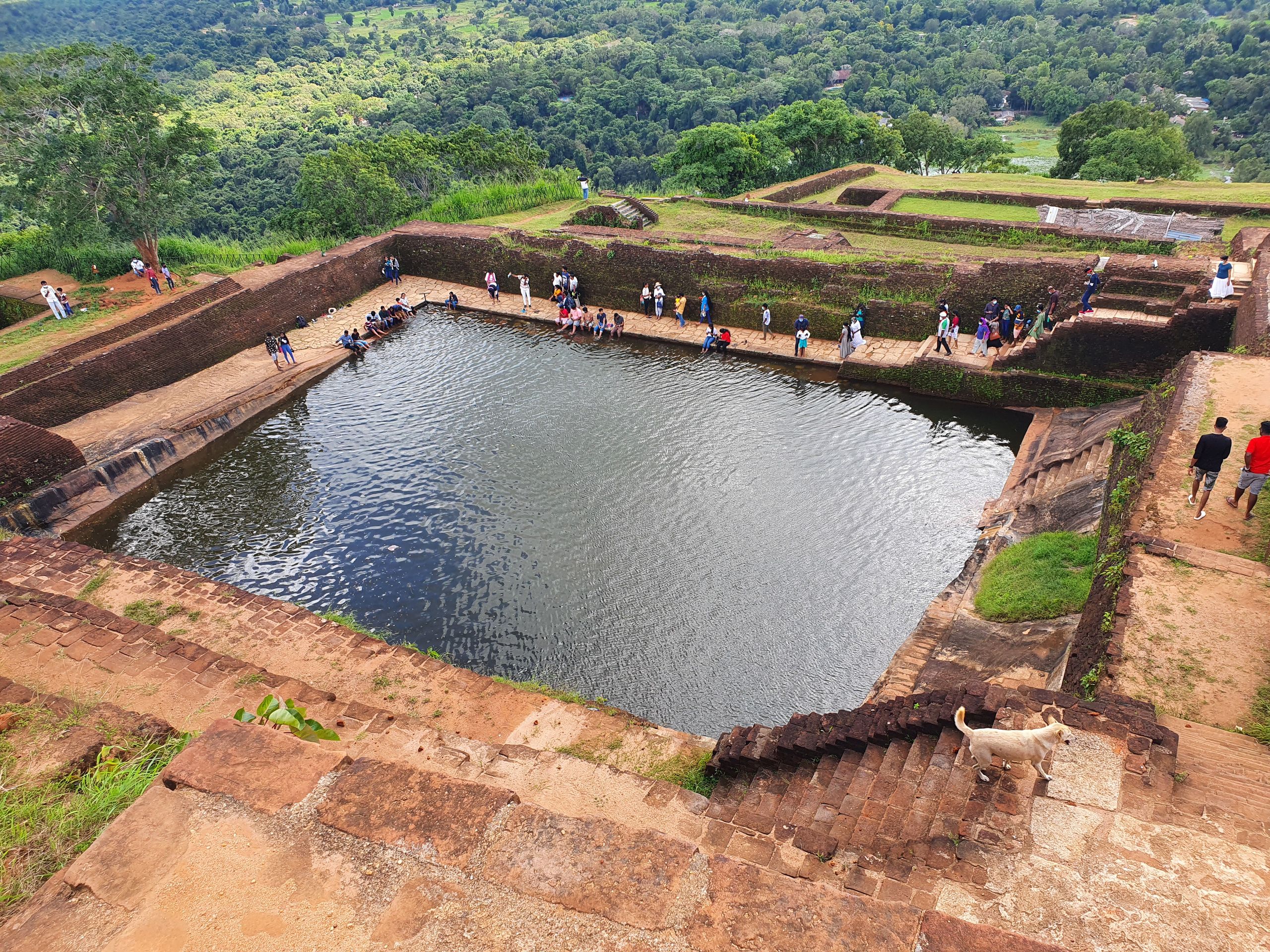
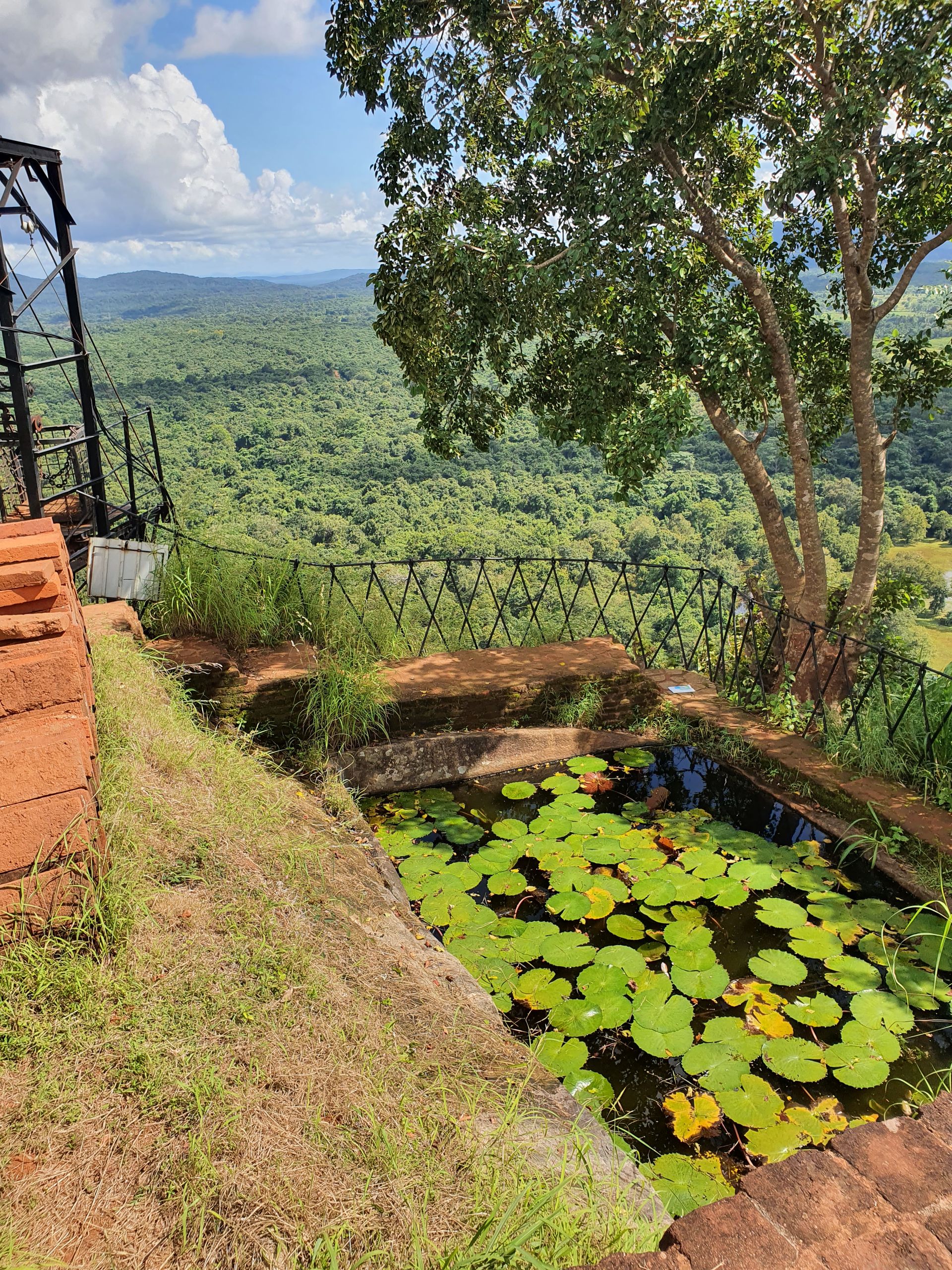
On the way down, you pass a smoothly polished old wall (a bit exaggeratedly called 'Mirror Wall' because you are supposed to see your reflection in it) and have the chance to admire well-preserved ancient cave paintings of voluptuous ladies. However, you are not allowed to take photos of them, so just check out Wikipedia to see if it's worth the detour.
The complex also has an informative museum, which is included in the ticket.
Cost
Sigiriya is quite expensive, foreigners pay 30 US dollars per adult, while locals, who probably also pay taxes, only pay 100 rupees, which is about 0.43€. For comparison: the Acropolis currently costs 20€.
Arrival
The Sigiriya Rock is not directly on a main road. There is a bus from Dambulla, otherwise you have to rely on self-organized trips. From the popular overnight location Habarana, we paid 1,000 rupees for a tuk-tuk ride in one direction, which took about half an hour.
Conclusion
In my opinion, Sigiriya is not a must on a Sri Lanka trip and can be quite frustrating if it is very crowded. If you are there particularly early, it is supposed to be less crowded, but since every travel guide says that, I have doubts.
If you are only interested in the view of the beautiful landscape, you can climb the neighboring Pidurangala Rock for a lower entrance fee. Or be satisfied with the nearby Huluru Eco Park, which is always part of elephant safaris and offers a viewpoint hill.
समाचारपत्रस्य सदस्यतां गृहाण
उत्तरम्
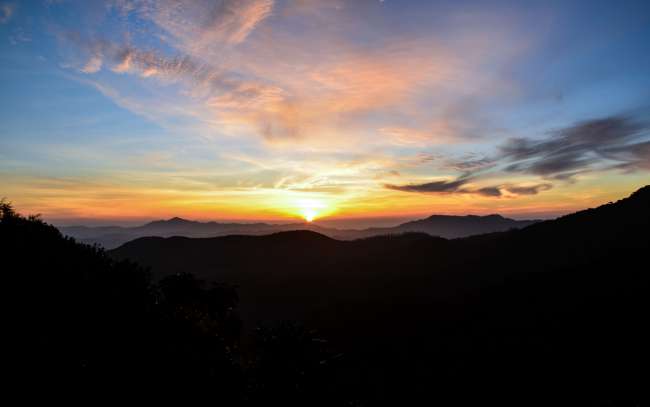
यात्राप्रतिवेदनानि श्रीलङ्का
